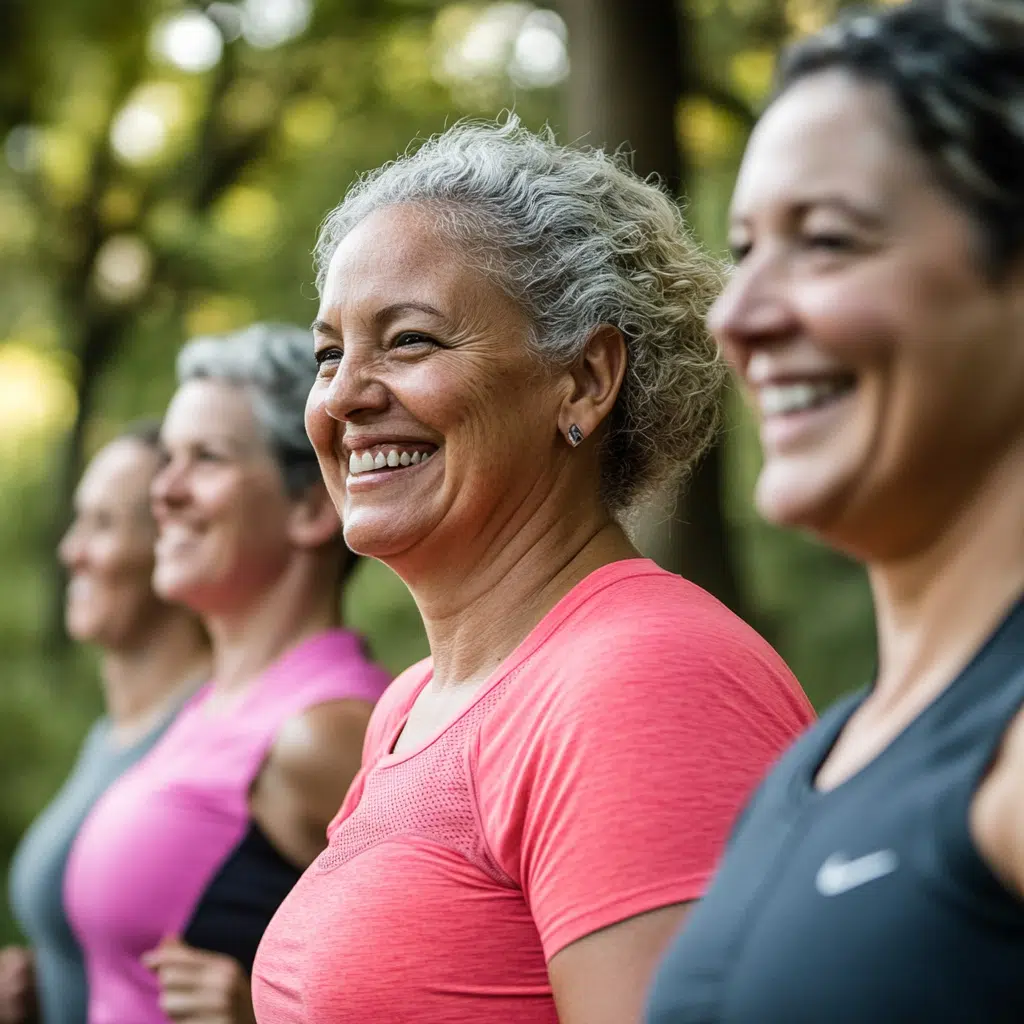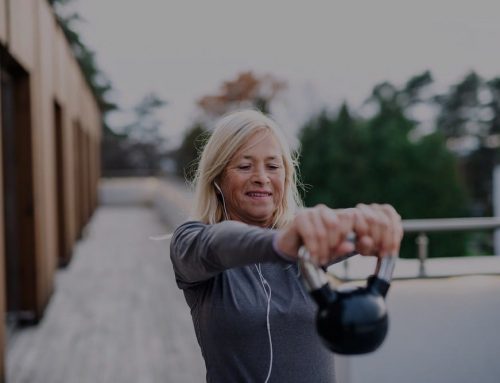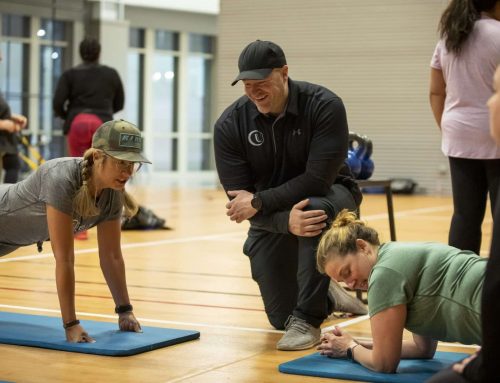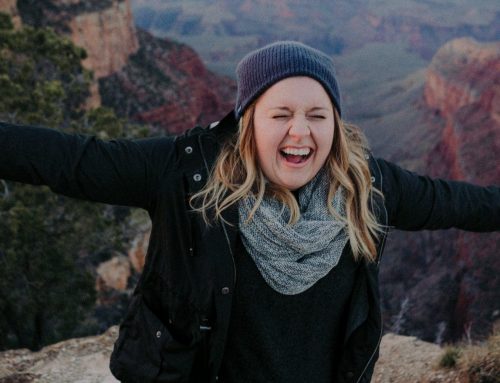
The Weight Loss Resort, More Than a Destination
Choosing a weight loss retreat is more than just picking a destination—it’s about finding a space where you can truly focus on yourself and your health. It’s not just about the number on the scale; it’s about creating habits that feel good, finding balance, and building a foundation for long-term wellness. That’s a deeply personal journey, and it’s one we know can feel overwhelming at times.
Maybe you’re coming here after years of putting others first or feeling stuck in a routine that no longer works for you. Maybe you’re ready to take a step toward a healthier lifestyle but aren’t sure where to start. Wherever you are in this process, it’s okay. Taking the time to figure out what you need—and what feels right for you—is the most important step.
At its heart, choosing a retreat is about more than just programs and schedules; it’s about finding a place where you’ll feel supported, understood, and empowered to make changes that stick. A place that helps you focus not just on your body, but on your overall well-being.
This process is about you—your needs, your goals, your comfort. As you consider your options, know that it’s okay to ask questions, to dig into the details, and to take your time figuring out what will work best for you. Because at the end of the day, this is about building something meaningful and lasting for yourself—and that’s a choice worth taking seriously.
Define Your Objectives
Before diving into the world of weight loss retreats, take a moment to reflect on what you’re hoping to achieve. This isn’t about what anyone else expects or what a program says you “should” do—it’s about your personal goals and objectives. Being honest with yourself upfront will make it much easier to find a retreat that aligns with your needs and sets you up for success.
Start with the basics: What are your primary goals? Are you focused on weight loss? Maybe you have a specific number in mind, or perhaps it’s more about feeling healthier and lighter overall. If improved fitness is on your radar, think about what that looks like for you. Is it about building strength, increasing flexibility, or improving endurance? For some, fitness means finally being able to hike that mountain trail, join a dance class, or keep up with their grandkids without feeling out of breath.
Sometimes, the focus isn’t just physical—it’s emotional. If you’re seeking stress reduction, consider how much stress has been affecting your life and how a retreat can provide space to reset. Would it help to have time away from everyday distractions to focus on yourself? Or perhaps you’re looking to adopt a more mindful approach to your daily routine.
Finally, think about lifestyle changes. Are you hoping to develop healthier habits that last long after the retreat ends? This could include learning how to make better nutritional choices, finding a workout routine that feels sustainable, or simply rediscovering what it means to take care of yourself.
As you explore retreats, keep your goals front and center. Look for programs that prioritize the areas you care about most. Whether it’s structured fitness classes, nutritional education, or mindfulness practices, the right retreat will cater to your specific needs. And don’t be afraid to ask questions—clarifying what’s most important to you is the first step toward finding a program that truly supports your journey.
Assess the Program’s Approach
Not all weight loss retreats are created equal, and their approach to health and wellness can make or break your experience. As you explore your options, pay close attention to the program’s methodology. Does it align with what you’re looking for? Does it seem realistic for your life beyond the retreat? These are crucial questions to ask before committing to a program.
Start with sustainability. Some programs promise dramatic results in a short period, but quick fixes often fail to deliver long-term benefits. Ask yourself: Will the strategies and habits you learn be easy to maintain after you leave? A great retreat isn’t just about what you accomplish while you’re there—it’s about giving you tools and skills that stick. Look for programs that emphasize sustainable lifestyle changes, such as balanced nutrition, realistic fitness routines, and mindful self-care practices.
Next, think about customization. Everyone’s health journey is unique, and the best retreats recognize that. Does the program take your personal needs into account? For example, are there tailored meal plans, fitness routines that suit your level, and space to adjust for medical conditions or limitations? Avoid one-size-fits-all programs that treat everyone the same and opt for retreats that offer personalized plans designed with your specific goals in mind.
Don’t overlook the importance of a holistic focus. Health isn’t just about physical changes; it’s about mental and emotional well-being too. Programs that include mindfulness, stress management, and mental health support are better equipped to help you achieve lasting results. A retreat that addresses the whole person—body and mind—can make a world of difference.
At Unite Fitness Retreat, for instance, we design individualized health plans that support accelerated fat loss, muscle gain, and improved overall well-being. Our approach blends personalized coaching, fitness, and nutrition with emotional support to help you build sustainable habits that work in the real world.
When assessing a program, ask yourself: Does it feel like a natural fit for my goals? Does the methodology make sense for my long-term health? By focusing on sustainability, personalization, and holistic care, you’ll find a retreat that sets you up for success—not just for a week or two, but for life.
Evaluate the Staff’s Expertise
The people guiding your journey at a weight loss retreat can completely shape your experience. Let’s be real—when you’re putting your health and well-being in someone else’s hands, you need to know those hands are steady, experienced, and genuinely invested in your success. The qualifications of the staff aren’t just a box to check—they’re the backbone of the support you’ll receive.
First, look at whether the retreat is staffed with certified health professionals. This means trained dietitians who can help you navigate nutrition in a way that feels sustainable and realistic—not restrictive or cookie-cutter. It also means experienced fitness trainers who know how to push you without overwhelming you, meeting you exactly where you are. If emotional well-being is part of your focus (and honestly, it should be), check if there are mental health counselors on hand. Having someone to help you manage stress or unpack the emotional layers tied to health can be a game-changer.
Also, consider whether there’s medical supervision available. While this might not seem like a big deal if you’re generally healthy, it can bring tremendous peace of mind if you’re managing a chronic condition or simply want that extra level of care. A retreat with medical professionals on the team shows they take your health seriously, and that matters.
But expertise isn’t just about credentials—it’s also about how the staff treats you. Are they approachable? Do they listen? Do they seem like they actually care about your progress, or are you just another person passing through? A good team balances professionalism with warmth, making you feel supported, encouraged, and safe.
We pride ourselves on having a team that checks all these boxes. From skilled dietitians to compassionate fitness trainers, our staff isn’t just highly qualified—they’re also deeply committed to helping you feel your best, both physically and emotionally. You deserve a team that makes you feel seen, heard, and empowered, and that’s what we aim to provide.
Consider the Setting and Amenities
Let’s be honest—where you stay can completely shape your experience at a weight loss retreat. It’s not just about what you’re doing during the day; it’s about where you wake up, where you unwind, and the spaces that make you feel like you’re truly taking care of yourself. The setting isn’t just a backdrop—it’s part of the journey.
Start with the location. Think about where you’d feel most comfortable. Is it in a serene countryside, surrounded by quiet trails and fresh air, where you can clear your head and breathe a little easier? Or maybe the idea of a beachfront retreat, with the sound of waves and sand beneath your feet, feels like the kind of calm you’re craving. On the other hand, you might be someone who thrives in an urban setting, with access to modern comforts and a little buzz of city energy while still having space to focus on yourself. There’s no wrong answer—just imagine where you’d feel most at home.
Then, take a closer look at the facilities. You’re coming to work on yourself, so the retreat should have everything you need to support that. Is there a fitness center with enough variety to keep things interesting? What about pools, whether for swimming laps or just letting your muscles relax? And let’s not forget spa services—a massage after a hard workout isn’t just a luxury, it’s a way to reset and recharge. These little touches can make a huge difference in how supported and cared for you feel during your stay.
And, of course, there’s the accommodation. This is where you’ll unwind at the end of each day. Is it comfortable? Is it quiet? Does it feel like a space where you can relax, let go, and focus on what matters? A place that feels cozy and restorative is essential—it’s where your body and mind will process all the work you’re doing.
Picture yourself in these settings. Are you hiking a peaceful trail? Watching the sunset over the ocean? Sinking into a soft bed after a day of workouts and reflection? The right environment can motivate and ground you, creating the perfect foundation for real, lasting change.
Look Into the Schedule and Flexibility
The daily structure of a weight loss retreat can make or break your experience. If the schedule doesn’t align with how you prefer to spend your days, it can feel exhausting or even discouraging. The best programs strike a balance: enough structure to keep you focused and on track, but with enough flexibility to let you breathe and enjoy the process.
First, think about the daily schedule. Are you someone who thrives on structure, with every moment of the day planned out? Or do you prefer a little room to adjust based on how you’re feeling? Some programs are highly rigorous, with back-to-back fitness classes, workshops, and group meals. For some, that level of activity is energizing and motivating. But for others, it might feel overwhelming. Ask yourself: Would I appreciate built-in downtime for reflection, rest, or exploring the retreat’s surroundings? Having time to relax can be just as important as your workouts.
Then, look at the activity options. Are there choices that genuinely interest you? Maybe you’ve always wanted to try yoga or water aerobics, or perhaps group fitness classes like HIIT or dance are your thing. Does the program give you the freedom to choose activities that excite you, or is it more of a “one-size-fits-all” schedule? The opportunity to explore new ways of moving and being active can make the experience feel more personalized and fun.
Flexibility isn’t just about having free time or options—it’s about finding a rhythm that works for you. A program that leaves you feeling burned out isn’t going to help you stick with your goals after the retreat. On the flip side, too much downtime might make you lose momentum. The right retreat should find that sweet spot, balancing hard work with enough breathing room to keep you engaged.
Whether you’re looking for a short express reset or a longer immersive experience like our one-month program, make sure the structure matches how you work best—because this is your time, and it should feel right for you.
Investigate Post-Retreat Support
Attending a weight loss retreat can be life-changing, but what happens when it’s over? The real challenge often begins after you leave, as you try to maintain the progress you’ve made in the middle of your regular routine. This is where post-retreat support becomes crucial. The best retreats don’t just send you home with good intentions—they give you the tools, resources, and ongoing support to stay on track long after you leave.
Start by looking into the retreat’s follow-up resources. Do they offer anything to help you stay connected to the lessons you’ve learned? For instance, some retreats provide meal plans, exercise guides, or educational materials you can refer to at home. Others might offer virtual tools, like apps or webinars, that keep you accountable. Having these resources at your fingertips can make a huge difference when life gets busy and old habits try to creep back in.
Next, consider how the retreat encourages continued engagement. Do they provide access to support groups where you can connect with other participants who understand what you’re going through? Many people find that having a community—even a virtual one—offers encouragement and keeps motivation high. Some retreats even organize online groups or forums where alumni can share progress, exchange tips, and celebrate wins together.
Also, ask if the retreat offers follow-up consultations. Whether it’s periodic check-ins with a coach or scheduled calls to reassess your goals, having someone to hold you accountable and offer guidance can be invaluable. A program that prioritizes ongoing support shows they care about your success in the long term, not just while you’re there.
Long-term health and wellness aren’t built in a week—they’re nurtured over time. That’s why it’s essential to choose a retreat that’s committed to your success beyond the time you spend on-site. The right post-retreat support can turn a temporary reset into lasting change, helping you carry the confidence, tools, and habits you’ve gained into the future.
Understand the Financial Commitment
Choosing a weight loss retreat isn’t just an investment in your health—it’s also a financial decision, and it’s important to go in with a clear understanding of what you’re paying for. The last thing you want is to be surprised by hidden fees or unexpected costs. Taking the time to evaluate the retreat’s pricing structure can help you make sure it aligns with both your goals and your budget.
Start by looking at the inclusions. What’s covered in the program rates? Are accommodations included, and if so, what kind of lodging can you expect—basic or more luxurious? Does the price include all meals, and are those meals aligned with the retreat’s health and wellness focus? Beyond food and lodging, ask about fitness programs: Are the workouts, classes, and other activities part of the package, or do you need to pay extra for some options? The more clarity you have about what’s included, the better you’ll be able to assess the overall value.
Then, dig into potential additional fees. Are there optional services, like spa treatments or private coaching, that come with extra costs? While these might be worth it, knowing ahead of time can help you plan for them. Also, check if there are costs for things like transportation to and from the retreat, equipment rentals, or even tips for staff. Understanding all the extras upfront ensures there are no surprises.
It’s also worth asking if the retreat offers all-inclusive packages. These can simplify things by bundling everything together, so you don’t have to worry about piecemeal costs. However, even with an all-inclusive option, make sure to confirm exactly what “all” includes—it’s better to ask questions now than to feel blindsided later.
For those working with tighter budgets, explore whether the retreat offers financing options or scholarship programs to make their services more accessible. Many quality retreats understand that health transformation shouldn’t be limited by financial constraints and have created pathways to help more people access their programs.
Ultimately, your decision should feel like a smart investment, not a gamble. A retreat’s price should reflect its value, including the quality of the experience, the expertise of the staff, and the impact it could have on your long-term health. Take the time to evaluate whether it fits within your budget and gives you what you need for a successful, stress-free experience.
Seek Testimonials and Reviews
When you’re trying to figure out if a weight loss retreat is the right fit for you, nothing beats hearing from people who’ve already been through it. Testimonials and reviews are like getting advice from a friend who’s been there—they give you a glimpse into what really happens, beyond the polished marketing promises. This is your chance to learn from others’ experiences, both good and bad, so you can make an informed decision.
Start by looking for peer feedback. Find reviews from people whose stories resonate with you—maybe they had similar goals, were at a similar starting point, or had the same concerns going in. What did they think of the retreat? Did they feel supported, encouraged, and empowered? Honest accounts from people who’ve walked in your shoes can tell you a lot about whether a retreat truly delivers on its promises.
Pay close attention to what they say about program effectiveness. Did participants feel like they made real progress during their stay? Were the results meaningful, not just on the scale, but in how they felt physically and emotionally? Look for mentions of health improvements like increased energy, better sleep, or reduced stress. If past guests say they left with tools to keep the progress going long after the retreat ended, that’s a major green flag.
Beyond results, listen for stories about transformative experiences. Did they talk about breakthroughs or moments where everything clicked? Did they mention feeling genuinely cared for by the staff? These details reveal whether a retreat is just a program—or something more impactful and personal.
Take time to watch video testimonials if available, as they often provide a more authentic glimpse of people’s experiences than written reviews alone. Hearing someone like Graham from Canada describe their journey in their own words can help you envision what your own experience might be like.
And don’t forget to notice how the retreat handles feedback. If there’s criticism in the reviews, has it been acknowledged or addressed? A retreat that listens and adapts shows they’re genuinely invested in creating a great experience.
Take your time to read between the lines and imagine yourself in their shoes. This is a big decision, and the experiences of others can help you figure out if the retreat is one where you’ll feel at home—and truly supported in your goals.
Reflect on Your Comfort Level
Your comfort with a weight loss retreat’s approach is everything—it’s what helps you feel grounded and open to the process. If a program doesn’t feel right from the start, it’s harder to fully engage and get the most out of your experience. The best retreats create environments where you can feel supported and confident that the program is designed with your success in mind.
Start by evaluating the program structure. How does their daily schedule line up with your preferences? Some retreats have a rigid, highly structured schedule with minimal downtime, while others offer flexibility with room for personal time. Think about what feels best for you. Would a slower-paced program help you recharge, or do you enjoy a schedule packed with activities? The structure should challenge you in a way that feels motivating, not draining.
Next, look at the retreat’s philosophy. Every program operates from a particular perspective on health and wellness, and it’s important that their approach feels like a good fit for you. Does the retreat prioritize long-term habits instead of quick fixes? Do they address your overall well-being, including physical, mental, and emotional health? A philosophy that aligns with your values can make the difference between feeling disconnected and truly connecting with the process.
Consider unique needs you might have—whether related to menopause, recovery after illness, or other specific health considerations. Finding a retreat that addresses your particular situation can provide an extra layer of comfort and effectiveness.
Trust how you feel when you research or interact with a retreat. Do the staff seem approachable? Does their program speak to what you’re looking for? Your comfort level is a guide—it helps you find a place where you feel safe and supported to push yourself, grow, and succeed.
The right retreat will feel like a partnership, one that respects where you’re starting from and helps you move toward your goals. When you feel comfortable with the structure and philosophy, you can focus on what really matters—taking care of yourself and making lasting changes.
Finding the Right Retreat for You
Choosing a weight loss retreat is a decision that’s as personal as it gets. It’s not just about finding the flashiest program or the trendiest destination—it’s about finding a place that feels right for you, your goals, and your journey. Every decision, from the program’s structure to the location, plays a role in helping you build something meaningful and lasting for your health and well-being.
As you sort through your options, remember to keep the focus on what truly matters to you. What are your non-negotiables? Is it a supportive environment? A schedule that fits your pace? A program philosophy that speaks to the kind of change you want in your life? There’s no one-size-fits-all retreat, and that’s the beauty of it—you have the power to choose what feels best for you.
Take your time, ask questions, and don’t be afraid to dig deep into the details. Look for reviews that give you insight into real experiences, ask about post-retreat support to ensure you’re set up for long-term success, and make sure the retreat’s approach aligns with your vision for yourself. You deserve a space where you feel comfortable, challenged, and cared for—where your goals are not only understood but truly supported.
If you’re ready to take that next step, consider exploring what Unite Fitness Retreat has to offer. Whether you’re interested in our Express Reset for a quick jumpstart or our comprehensive 7-day program, we’re here to support your journey every step of the way.
At the end of the day, this isn’t just about weight loss or fitness; it’s about creating a healthier, happier version of yourself. The right retreat will give you the tools, the confidence, and the clarity to take that next step—not just for a week or two but for the long run. Wherever you are in your journey, trust that the right retreat will meet you there and help you move forward. You’ve got this!







